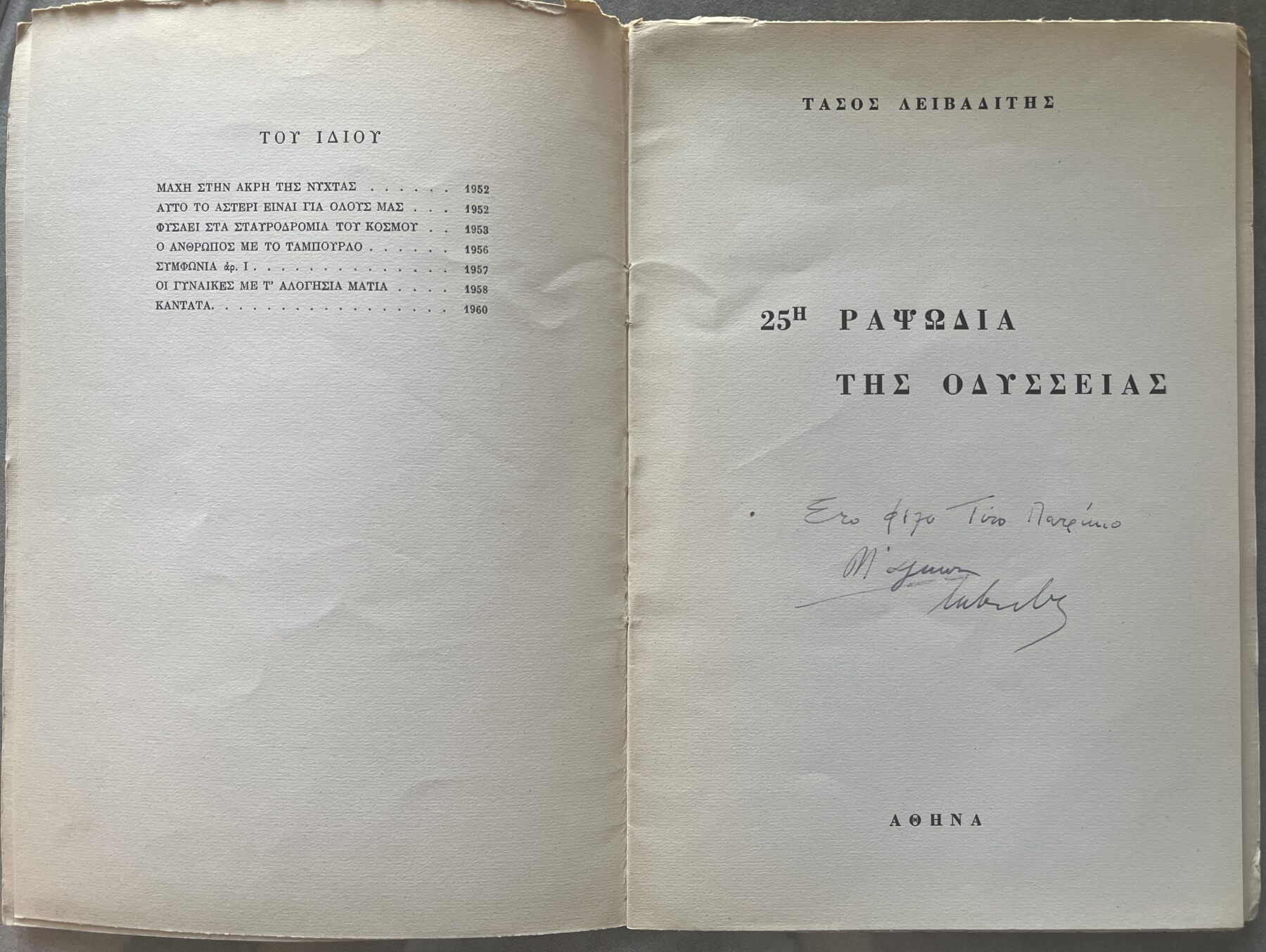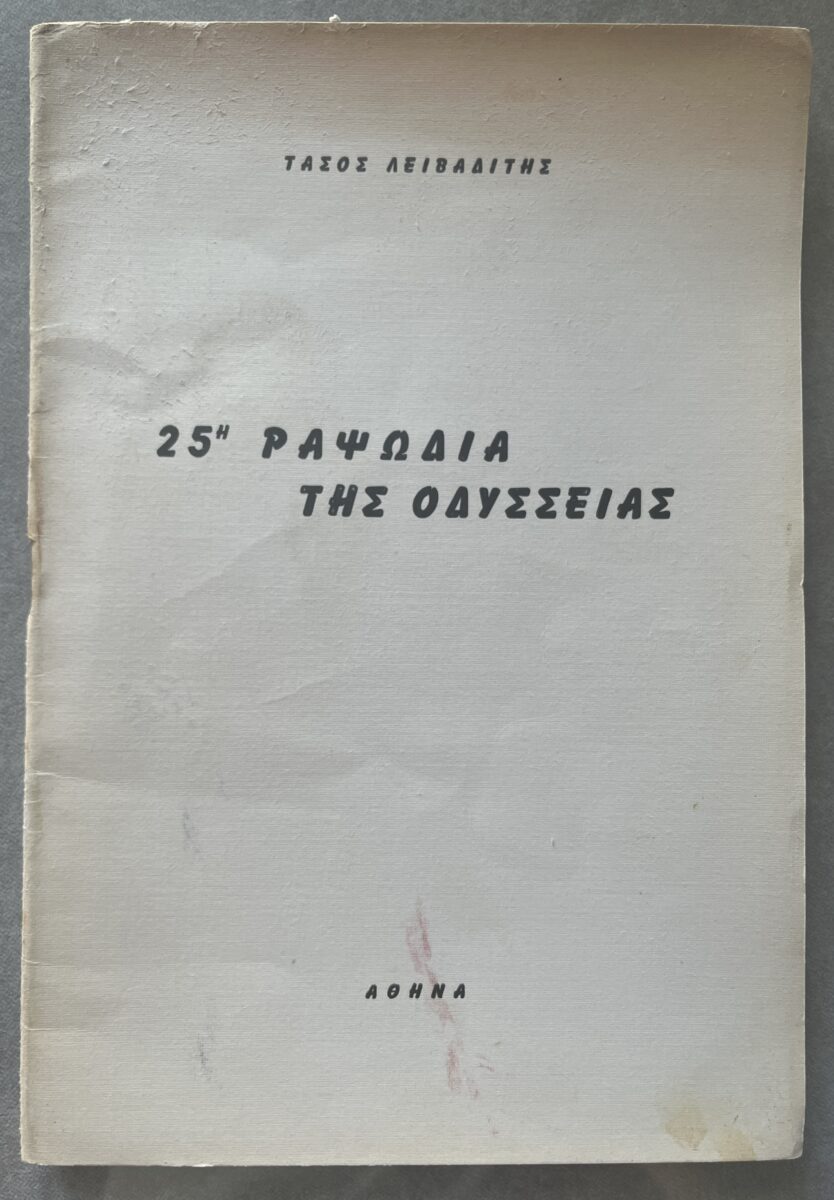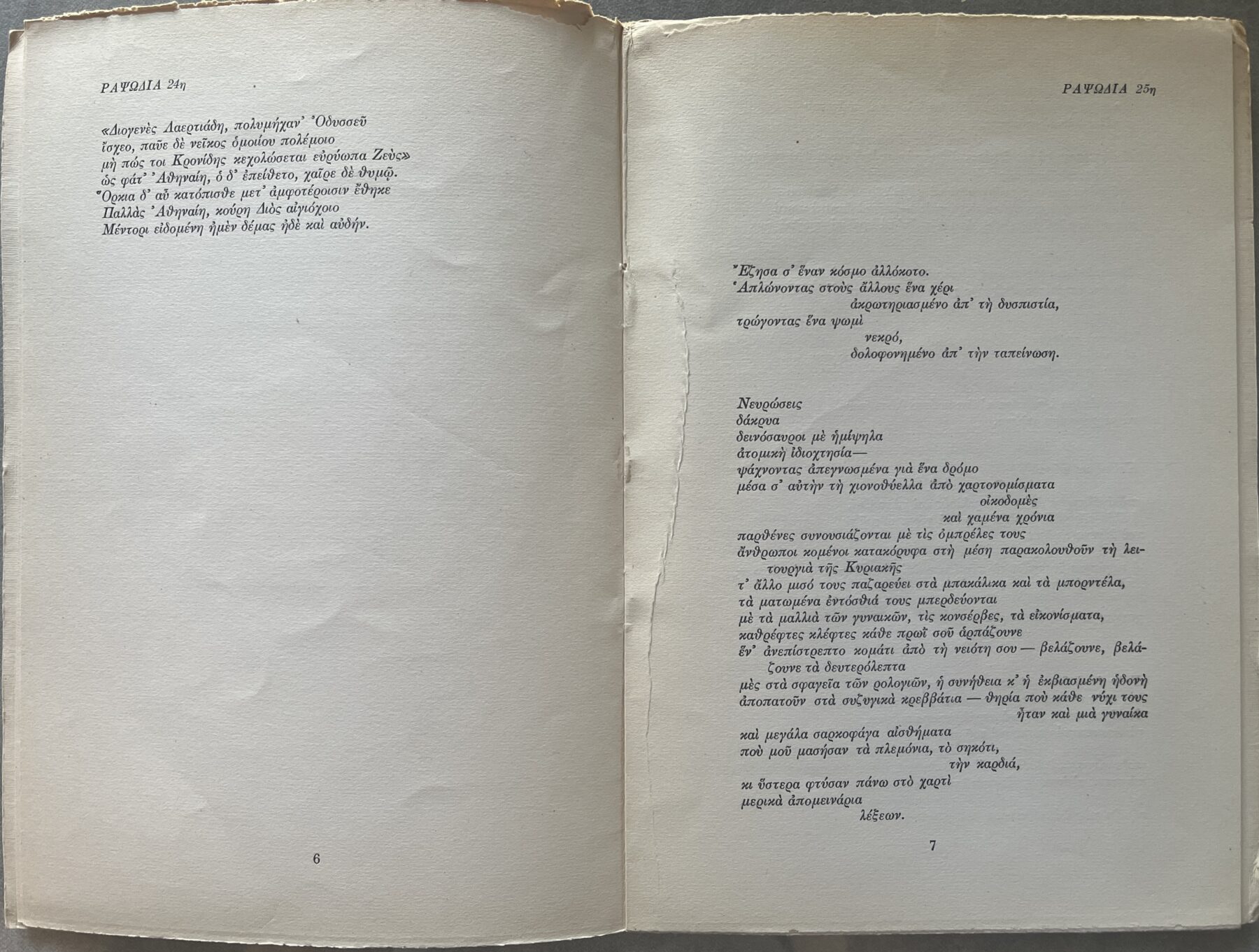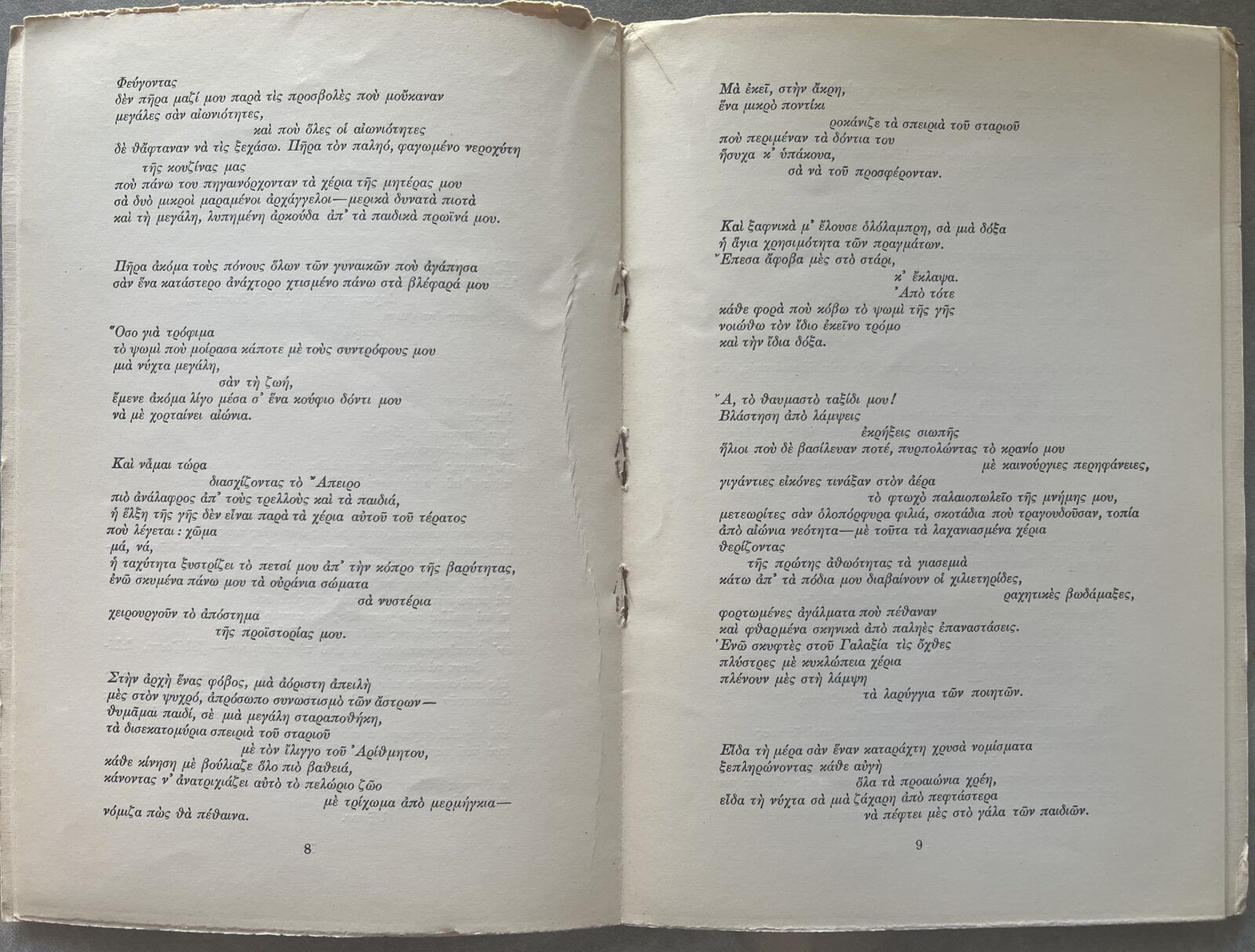Signed, 1963, Tasos Leivaditis, 25. Rapsodia tis Odyssias, First Edition, Greek Poetry
150.00€
Description
Τάσος Λειβαδίτης
25η Ραψωδία της Οδύσσειας
Ιδιωτική έκδοση, Αθήνα, 1963
Με αφιέρωση του συγγραφέα
Πρώτη Εκδοση
Tasos Leivaditis
25th Rapsody of the Odyssey
Self-Published in Athens, in 1963
Signed and dedicated by the author
First Edition
Soft Binding
13 Pages
25 cm x 17.5 cm
Tasos Leivaditis (1922 – 1988) was a Greek poet, short story writer and literary critic who belonged to the postwar generation that was deeply marked by the struggles and failures of the communist movement. His early and politically committed poetry traveled through the ‘fire and sword’ of history, transforming in the end into powerful and paradoxical prose-poems, and displaying an erotically charged form of ‘neo-romanticism’ mixed with ‘melancholic minimalism’ where “genuine humility offers obedience to the magic of language.”
About the book: While Leivaditis’ preceding work has been characterized as a ‘poetry of the battlefield’, a politically committed poetry reflecting the struggles of the resistance during World War II and of the Left during the civil war, his middle period work (1957-1967) begins to turn away from the previous hopeful and heroic spirit to one burdened by an increasing sense of crisis and disillusionment.
The condemned who suffocate the cell, after spending a month together, huddled together to fit, gradually begin to dwindle, as one by one they are led to their untimely end. Each time, however, the remaining ones remain huddled in place, not stretching their bodies, so as not to realize the loss of their companion. The remaining choose to blind themselves to the tragic loss and the irrevocable end that awaits them. Even when there are only two people left in the now empty cell, they prefer to stay huddled in their corners, unwilling to accept the fact that all their companions have been led to their deaths. This composition by Livaditis, which refers us through its title to the experience of Odysseus who continued his journey having lost his companions, comes to give a dimension of the path of those who fought for the change of things in the country, which no longer includes dynamism and enthusiastic visions for the future. He comes to tell us about the end of their journey, an end full of fear and denial, as the dreams and hopes of those people collided with the relentless determination to end the struggle to approach a different future.
Additional information
| Languages | Greek |
|---|











